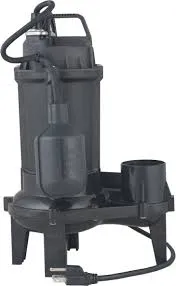English
- Afrikaans
- Albanian
- Amharic
- Arabic
- Armenian
- Azerbaijani
- Basque
- Belarusian
- Bengali
- Bosnian
- Bulgarian
- Catalan
- Cebuano
- Corsican
- Croatian
- Czech
- Danish
- Dutch
- English
- Esperanto
- Estonian
- Finnish
- French
- Frisian
- Galician
- Georgian
- German
- Greek
- Gujarati
- Haitian Creole
- hausa
- hawaiian
- Hebrew
- Hindi
- Miao
- Hungarian
- Icelandic
- igbo
- Indonesian
- irish
- Italian
- Japanese
- Javanese
- Kannada
- kazakh
- Khmer
- Rwandese
- Korean
- Kurdish
- Kyrgyz
- Lao
- Latin
- Latvian
- Lithuanian
- Luxembourgish
- Macedonian
- Malgashi
- Malay
- Malayalam
- Maltese
- Maori
- Marathi
- Mongolian
- Myanmar
- Nepali
- Norwegian
- Norwegian
- Occitan
- Pashto
- Persian
- Polish
- Portuguese
- Punjabi
- Romanian
- Russian
- Samoan
- Scottish Gaelic
- Serbian
- Sesotho
- Shona
- Sindhi
- Sinhala
- Slovak
- Slovenian
- Somali
- Spanish
- Sundanese
- Swahili
- Swedish
- Tagalog
- Tajik
- Tamil
- Tatar
- Telugu
- Thai
- Turkish
- Turkmen
- Ukrainian
- Urdu
- Uighur
- Uzbek
- Vietnamese
- Welsh
- Bantu
- Yiddish
- Yoruba
- Zulu
Telephone: +86 13120555503
Email: frank@cypump.com
Dec . 11, 2024 09:16 Back to list
Self-Priming Sewage Pumps for Effective Wastewater Management and Troubl-Free Operation
Self-Priming Sewage Trash Pumps An Essential Tool for Waste Management
In modern waste management systems, efficient removal of sewage and solid waste is critical. One of the essential tools employed in this process is the self-priming sewage trash pump. Known for their reliability and high performance, these pumps play a significant role in various applications, including residential, commercial, and industrial settings. This article delves into the functionality, advantages, and applications of self-priming sewage trash pumps.
Understanding Self-Priming Sewage Trash Pumps
Self-priming sewage trash pumps are designed specifically to handle wastewater containing solids and other debris. Unlike standard pumps that require a priming process before they can operate, self-priming pumps can purge air and maintain suction automatically once primed. This feature is particularly beneficial in environments where wastewater flows may be inconsistent or where debris may obstruct the pumping mechanism.
These pumps typically use an impeller to generate flow and a casing that contains air and allows for smooth operation even when they encounter air pockets. The ability to self-prime means that these pumps can start and run with minimal manual intervention, making them particularly useful in emergency situations where rapid response is crucial.
Advantages of Self-Priming Sewage Trash Pumps
1. Convenience The self-priming capability eliminates the need for external priming systems, making installation and operation more straightforward. This leads to reduced labor costs and less downtime in crucial operations.
2. Handling Solid Waste Self-priming sewage trash pumps are engineered to manage solid waste up to specified sizes, including rags, sticks, and other debris. This capability is essential in both municipal and industrial applications where sewage often contains various solid materials.
3. Versatility These pumps are suitable for a wide range of applications. From municipal sewage treatment facilities to construction sites needing to manage wastewater and stormwater, they can adapt to different environments and requirements.
4. Durability Constructed from robust materials, self-priming sewage trash pumps are designed to withstand harsh conditions. Many models are resistant to corrosion and wear, ensuring a longer lifespan even in challenging environments.
self priming sewage trash pumps

5. Energy Efficiency Many self-priming pumps are designed with energy-efficient motors, which help reduce operational costs. This efficiency results not only in savings for the user but also contributes to environmental sustainability by decreasing energy consumption.
Applications of Self-Priming Sewage Trash Pumps
Self-priming sewage trash pumps find applications across various industries
- Municipal Wastewater Management They are instrumental in the effective management of sewage in municipal treatment plants, ensuring that wastewater is handled efficiently without clogging issues.
- Construction Sites During construction projects, handling water mixed with mud and debris is commonplace. Self-priming pumps quickly remove excess water, preventing delays and maintaining site safety.
- Agriculture Farmers often rely on these pumps for drainage purposes during heavy rainfall or irrigation, ensuring that fields do not become waterlogged.
- Commercial Facilities Hotels, restaurants, and other commercial establishments utilize self-priming pumps to handle wastewater and prevent backflow, keeping facilities clean and hygienic.
Conclusion
Self-priming sewage trash pumps are invaluable tools in the management of wastewater and solid debris. Their ability to self-prime, combined with their durability and versatility, makes them ideal for various applications, from municipal to industrial settings. As urbanization continues to grow, and the demand for efficient waste management escalates, self-priming sewage trash pumps will undoubtedly remain at the forefront of the solutions that help ensure a cleaner and safer environment. Investing in quality self-priming pumps can enhance operational efficiency and contribute to sustainable waste management practices, ultimately benefiting society as a whole.
-
Horizontal Split Case Pump with GPT-4 Turbo | High Efficiency
NewsAug.01,2025
-
ISG Series Pipeline Pump - Chi Yuan Pumps | High Efficiency, Durable Design
NewsAug.01,2025
-
Advanced Flue Gas Desulfurization Pump with GPT-4 Turbo | Durable & Efficient
NewsJul.31,2025
-
ISG Series Vertical Pipeline Pump - Chi Yuan Pumps | Advanced Hydraulic Design&Durable Construction
NewsJul.31,2025
-
ISG Series Vertical Pipeline Pump - Chi Yuan Pumps | Energy Efficient & Low Noise
NewsJul.31,2025
-
pipeline pump - Chi Yuan Pumps Co., LTD.|High Efficiency&Low Noise
NewsJul.31,2025










